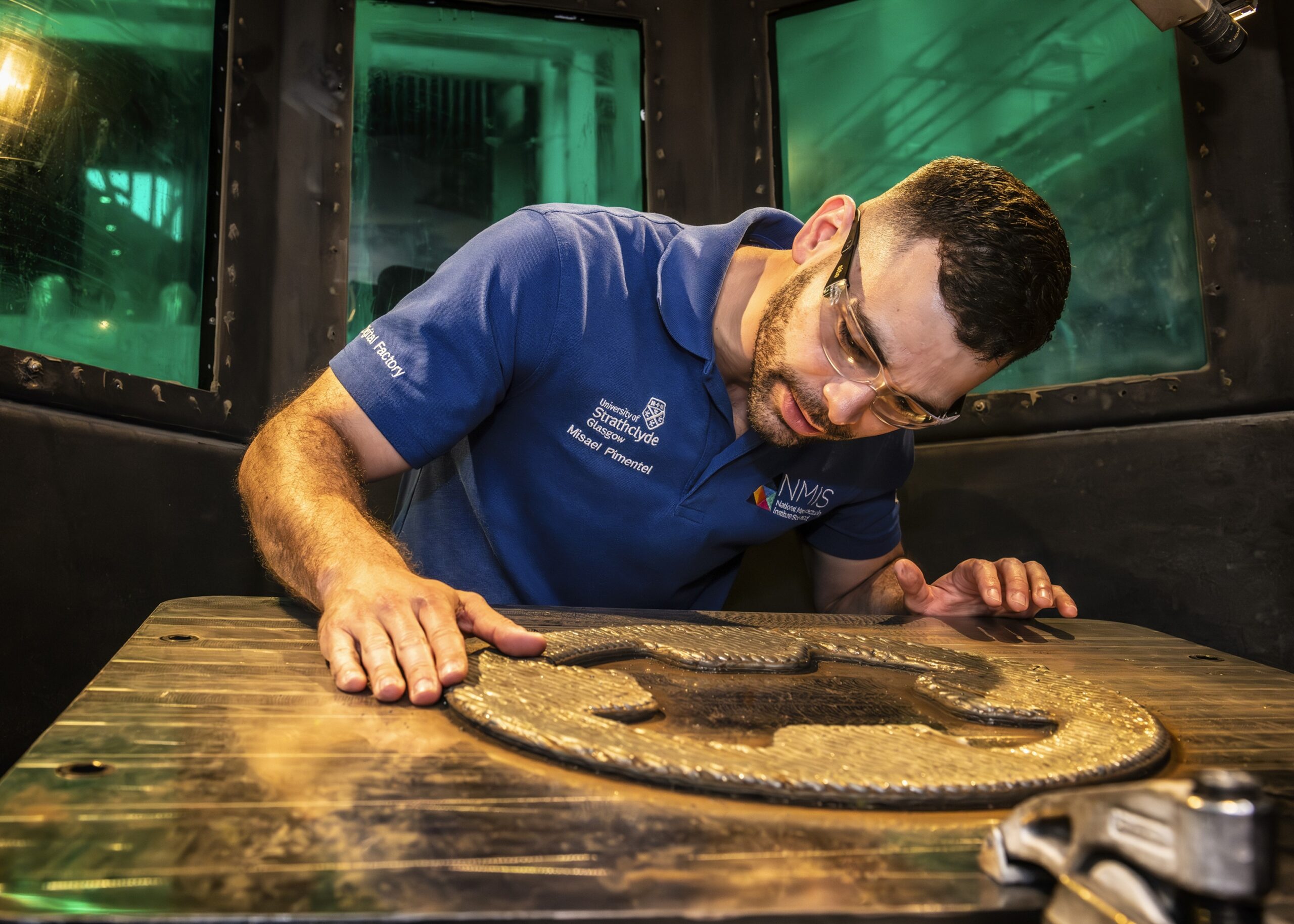A Scottish challenge utilizing large-scale additive manufacturing for shipbuilding parts has accomplished its second section, demonstrating potential advantages for the maritime trade. The MariLight 2.0 challenge, led by Glasgow-based Malin Marine Consultants with assist from the Nationwide Manufacturing Institute Scotland, centered on producing a topology optimized tapping ring.

Testing outcomes confirmed the redesigned element achieved a ten% discount in emissions, minimize lead instances by 90%, and diminished vessel weight by 13%. The tapping ring, which reinforces openings in vessel decks or tanks, was manufactured utilizing Direct Vitality Deposition-Arc (DED-Arc) know-how at NMIS’s Digital Manufacturing facility. This additive manufacturing course of builds metallic components layer by layer utilizing superior welding strategies.
The element underwent rigorous hydrostatic and leak testing below sustained strain, with Lloyd’s Register offering unbiased verification. Mission companions included BAE Techniques, Caley Ocean Techniques, Siccar, Altair, and Hexagon Manufacturing Intelligence, every contributing specialised experience in design optimization, computational modeling, and knowledge sharing platforms.
“MariLight 2.0 showcases the real-world potential of large-scale additive manufacturing within the maritime sector. By combining superior digital processes with rigorous certification protocols, we’ve demonstrated how this know-how can assist extra sustainable, environment friendly manufacturing strategies,” stated Misael Pimentel, MariLight 2.0 challenge lead at NMIS.
The challenge was funded by the Division for Transport’s Clear Maritime Demonstration Competitors (Spherical 4) and helps the UK’s dedication to attaining net-zero maritime emissions by 2050. The initiative goals to shift the maritime sector from conventional guide fabrication towards automated and extra environmentally pleasant manufacturing approaches.
Supply: nmis.scot

